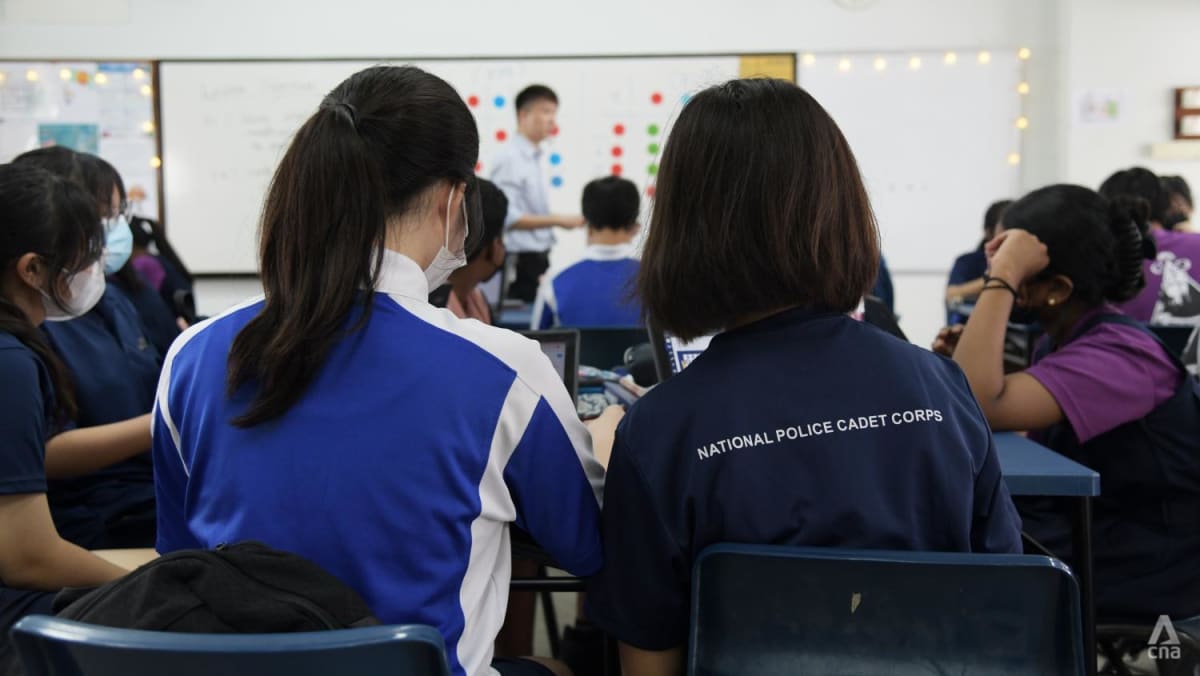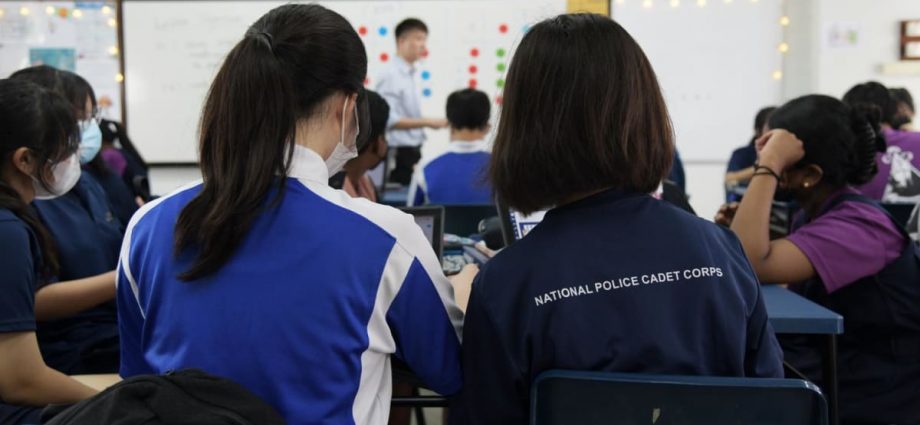
Students who score between 4 and 20 points will be in posting group 3, and those who score between 23 and 24 points will be in posting group 2.
Those who score 26 to 30 points, with an Achievement Level of 7 in English and mathematics, will be in posting group 1.
Students who score 21 or 22 points will be put in an option band, and can choose to apply as a student from posting group 2 or 3. Students who score 25 points can choose between applying under posting group 1 or 2, the Education Ministry said.
How does this affect Sec 1 posting?
A student should consider their posting group and PSLE score when applying for entry into secondary school.
For example, a student who scores 10 points for PSLE will be put in posting group 3. This student can then consider schools that accept students from posting group 3.
They should also consider their PSLE score and how it compares to the schools’ cut-off ranges when listing their school choices. With a score of 10, it may be more difficult to get into a school that has a cut-off point range of 4 to 8, but easier to score a spot in a school with a cut-off point range of 6-12.
Students who are put in the option bands can choose to apply to schools that accept either posting group.
Currently, students who score within the option bands can already choose to apply for schools at an Express or N(A) level, and N(A) or N(T) level respectively. Each school will continue to have a different cut-off point range for each posting group it accepts.
For example, those in the first option band may apply to Springfield Secondary School, which accepts students from posting groups 1, 2 and 3 from 2024.
They can choose to apply under posting group 2 or 3, depending on how their score compares to the school’s cut-off point ranges.
Students may then go on to enter the school under posting group 2, and eventually take some subjects at a higher level.
What about the subjects?
The posting group that the student enters the school under will determine the level of most of the subjects they take.
For example, a student who enters a school under posting group 2 will take most of their subjects at G2 at the start of the year.
Depending on their PSLE results for the various subjects, they may also be offered a chance to take English, math, science or mother tongue at the G3 level from the start.
If they do well later on, they may be offered a chance to go from G2 to G3 for their other subjects too.
This means that a student that enters a school under posting group 2 and starts off with mostly G2 subjects may eventually take many, or even all their subjects at the G3 level as they progress through secondary school.
What if students find the subject too difficult?
Students can also choose to take subjects at a less demanding level if they are not coping well.
From 2024, students entering Secondary 1 who face exceptional difficulties with mother tongue will have the option to offer it at a less demanding level, at G1 or G2.
Students who are offered English, math or science at Foundation level at PSLE, but are otherwise eligible to take most of their subjects at G3 in secondary school, can choose to take those subjects at a less demanding level, or G2, after consulting with their schools.
They can further adjust these subject levels as they progress through secondary school.
From 2026, some subjects will also be offered as electives at more demanding or less demanding levels.
For example, computer applications is currently a standalone subject for lower secondary N(T) students.
This will be discontinued, and computing will be offered as an elective subject for all upper secondary students from 2026, when the Secondary 1 batch of 2024 reaches Secondary 3.
From the 2024 Secondary 1 cohort, social studies for the N(T) stream will also be discontinued, and replaced by G1 humanities, which is non-examinable.
Most of the elective subjects taken at the upper secondary level are examinable, and there are some elective subjects, like History, that are not offered at the G1 level, said MOE.
About 80 per cent of secondary schools will implement full subject-based banding.
The remaining schools include integrated programme schools such as Raffles Institution, which only accept students from posting group 3 – currently the Express stream. Crest Secondary School will also remain a specialised school that offers a customised curriculum for students in posting group 1 – currently the Normal (Technical) stream.
However, these schools can still allow students to take subjects at a more demanding or less demanding level.

